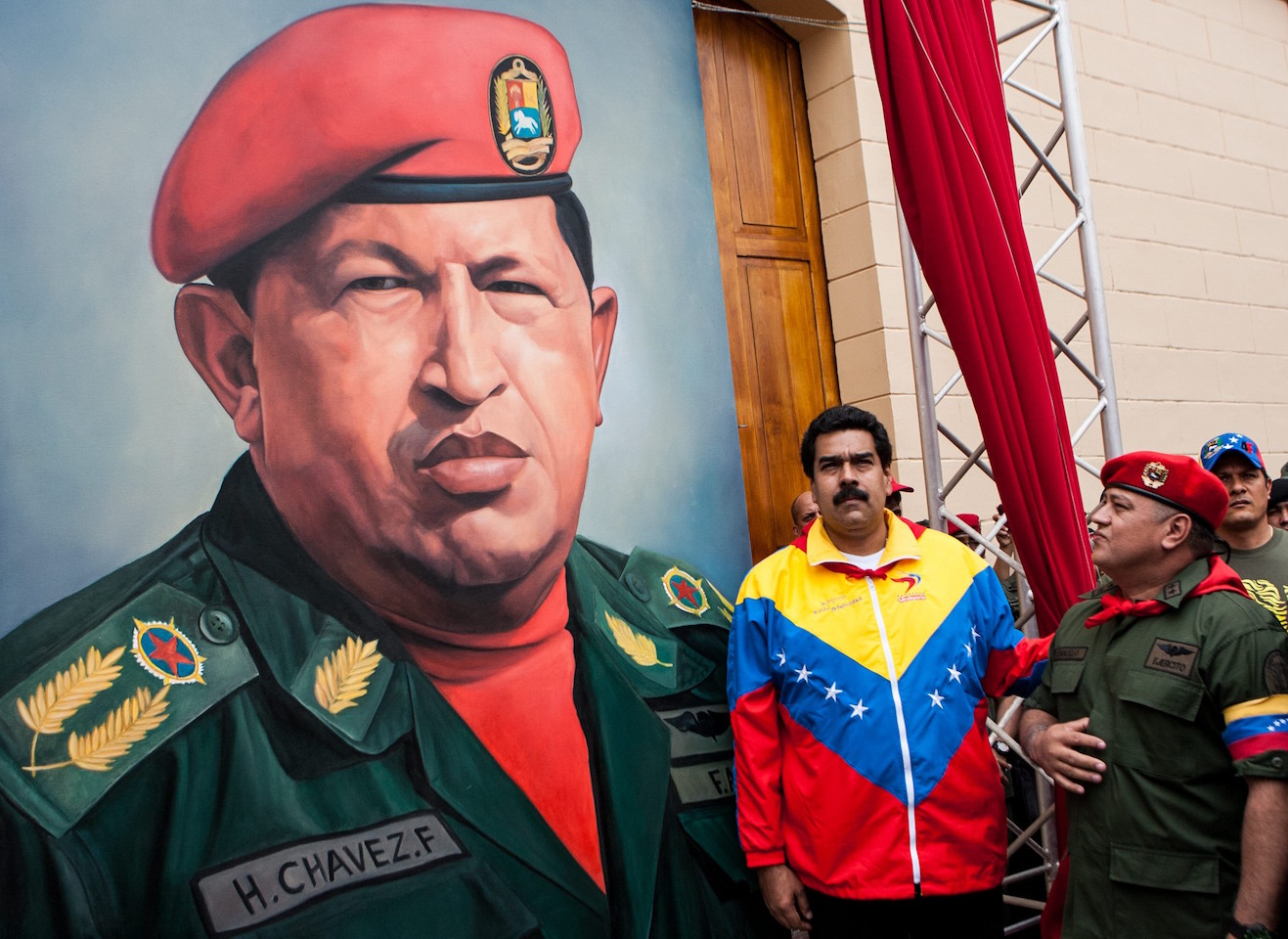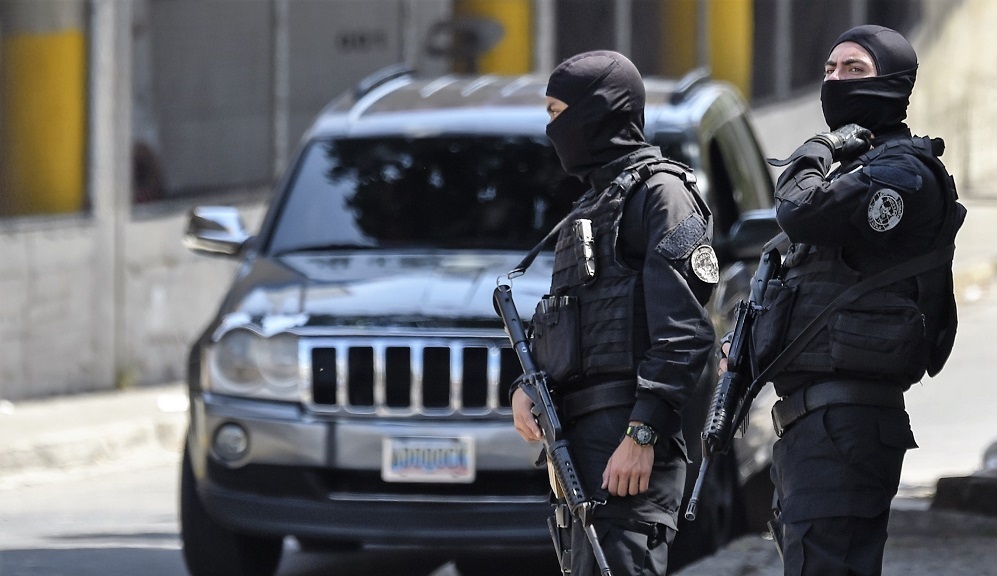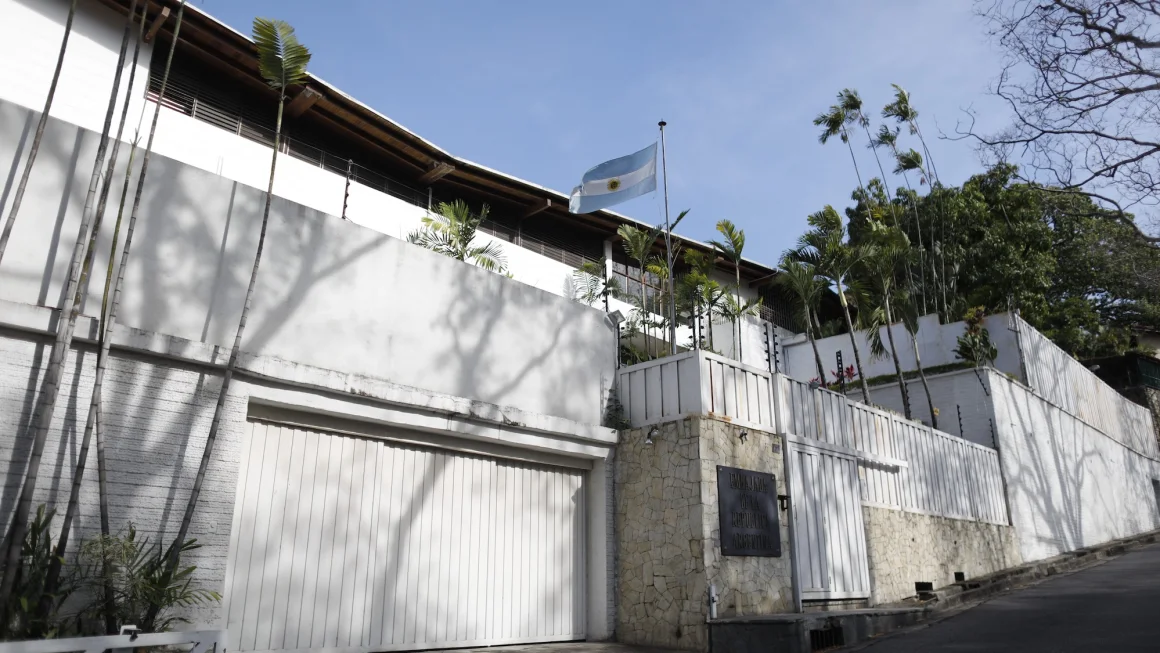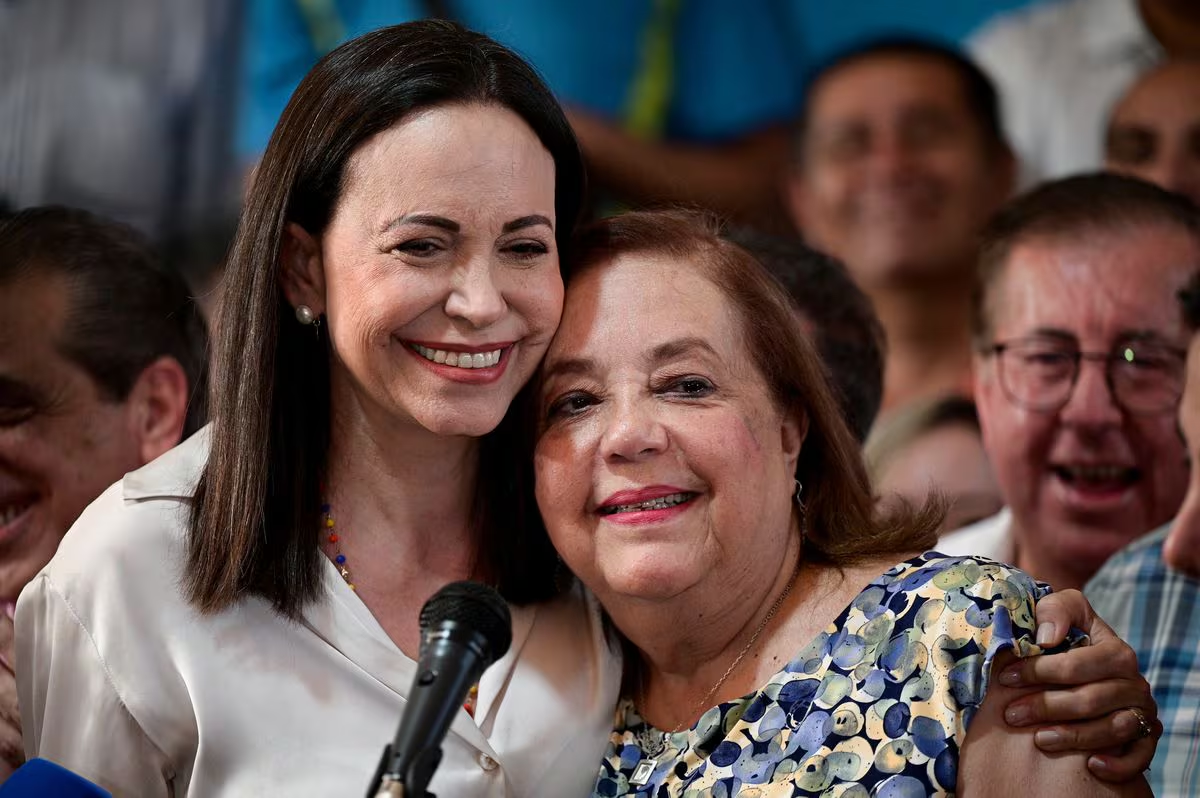Armed men attacked the house in which Venezuela’s leading opposition party leader, Maria Corina Machado, resided in during her visit to Táchira on July 4, as election day looms closer for the nation. The news of the attack was revealed by the president of the El Amparo Foundation and director of the International Committee against Impunity in Venezuela (Ciciven), Walter Márquez, during a press conference.
The Attack
One of the guards was reportedly gagged and beaten by the assailants, before searching the home for information related to the party, the Unitary Platform, and interrogating the guard alongside his comrade about the truck Machado used for tours. Márquez stated the attack followed a number of interference in operations conducted by the Unitary Platform, citing the forced closure of restaurants that are owned by members of the opposition on June 26.

On June 28, authorities arrested staff serving Machado before transporting those detained to a special police unit known as Special Action Forces (FAES), which interrogated those detained regarding the actions of Machado before attempting to intimidate those held by claiming Machado was guilty of betraying her country according to Márquez. Authorities further arrested Machado’s drivers, confiscating their vehicles before their release the next day.
Márquez stated he formally initiated a complaint to the Public Prosecutor’s Office, a complaint they had originally refused to accept, stating that Márquez did not have power of attorney to represent those detained by authorities as he refused to reveal their names.
Following the Prosecutor’s Office refusal, Márquez stated that his organization would file a complaint with the Inter-American Commission on Human Rights and the International Criminal Court (ICC).
Continued Political Repression
The attack on Machado’s lodgings follows increased measures by the Venezuelan government to limit the ability of the Unitary Platform to campaign in the leadup to the nation’s elections, which are slated for July 28. Previously, Machado, who originally won the opposition parties’ primary by 90 percent in October, was barred from running for public office last year due to her support for US sanctions and criticisms against Maduro’s government. Machado also fought against claims that she had participated in a number of corrupt dealings and for her public support of former opposition leader, Juan Guaido.
Following the ruling, the United States revoked a portion of its sanctions relief, reimposing sanctions on Venezuela’s gold mining industry. The US claimed that the numerous bans against political rivals violated the 2023 Barbados agreement, which was signed to promote political rights and electoral guarantees for those wishing to run for office. The agreement outlines several key points, including recognizing the right of political actors to choose their candidates freely and promoting electoral guarantees before the National Electoral Council.

Ultimately, Machado chose a political unknown, Corina Yoris, to take her place as frontrunner in March, days prior to the registration dates for candidates. Yoris, a professor, and former news columnist who has never held public office, ultimately failed to register in what the opposition claimed was the fault of the government.
In a bid to offer Venezuela an alternative to Maduro, the Unitary Platform chose to endorse former diplomat Edmundo González Urrutia with the hope of registering another candidate at a later date. This hope eventually dissolved after the alliance fully endorsed González as their candidate. González, who previously served as the country’s diplomat to Algeria and Argentina, maintains that Machado remains “the leader of the opposition” and “the leader of this unitary process,” leaving the disqualified politician to campaign in his place.
Prior to the announcement that Yoris was unable to register, arrest warrants against several members of Vente Venezuela were issued on charges of conspiracy to assassinate the President. These warrants followed hot on the heels of the arrest of more than 30 activists and political leaders–including other members of Vente Venezuela–in a move that international aid groups and the United Nations claimed was a deliberate effort to limit the opposition.
In March, the Venezuelan Intelligence Service, Sebin, arrested Machado’s campaign director and regional coordinator, Emill Brandt Ulloa. Just weeks after this arrest, warrants were issued for a number of other key leaders within the opposition party, six of whom fled to the Argentine embassy to apply for political asylum, alleging that the arrest warrants were intended to weaken the party and not for a just cause.

Tensions flared between the Argentine government and Maduro’s regime when workers employed by the state allegedly cut all power to the Argentine Embassy following calls from authorities to surrender those seeking asylum.
“After issuing an arrest warrant, a siege began on the Argentine embassy in Caracas,” said Omar González Moreno, a former deputy and one of the regional coordinators of the party’s electoral command. “They have cut off our electricity. Refrigerators, water, and basic services.”
Gonzalez Moreno further alleged “video evidence” of state workers tampering with “part of the equipment that allows only the residence of the Argentine ambassador in Caracas to be without electrical service.”
The five others who fled to the Argentine Embassy included Magalli Meda, the campaign manager for Machado; Pedro Urruchurtu, the international coordinator of Vente Venezuela; Humberto Villalobos, an electoral expert; Claudia Macero, who is in charge of the party’s communications; and a sixth unnamed person who requested anonymity due to security concerns.

The move was met with concern from Argentine officials, with the government alleging that the cutting of power was a direct violation of the Vienna Convention on Diplomatic Relations.
Following the siege, Argentine and Venezuelan authorities reached an agreement to allow those seeking asylum in the embassy to peacefully leave Venezuela. This agreement ultimately fell through, according to Argentine officials, who claim that the Venezuelan government never issued safe-conduct passes.
In another move that has cast doubts on the future elections, Venezuela’s National Electoral Council (CNE) rescinded the European Union’s invitation to oversee the nation’s upcoming presidential elections in early June, citing the EU’s continued sanctions on 50 figures within the nation. The move has resulted in the EU requesting the CNE to reevaluate its decision, stating in a post on X that international observation is essential to safeguard the upcoming election.

As Venezuela slowly moves closer to its election date, ruling President Nicolas Maduro has stepped up efforts to prevent the influence of the Unitary Platform from growing, going so far as to label a number of unmanned opposition candidates as “fascists” and members of the “far-right.” These actions may signal Maduro’s concern regarding the opposition, as Machado herself has claimed that in the “worst case” scenario for the opposition, 80 percent of Venezuelans will support the Unitary Platform in the upcoming elections.


